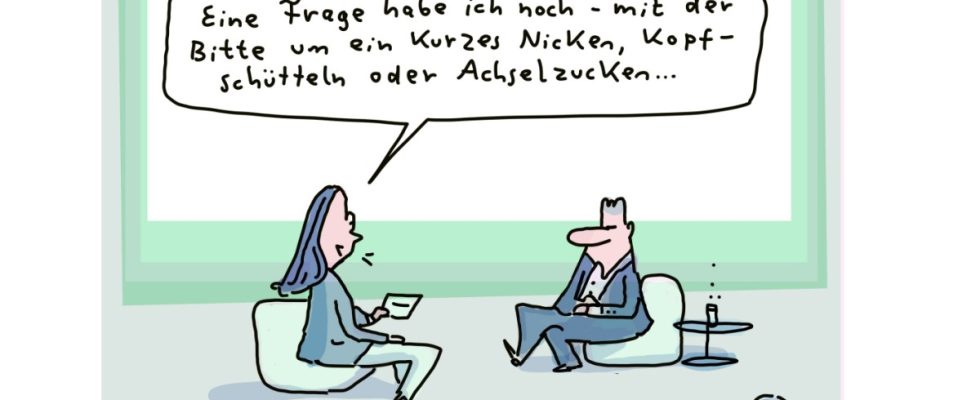The world is in great disorder and the multiple crises of these years threaten to overwhelm many people. Russia is waging a war of aggression against Ukraine, and after Hamas’ terrorist attack on Israeli civilians there is war in the Middle East. Climate change is getting worse, artificial intelligence is becoming established in many areas of life, with far-reaching consequences for the world of work.
What does all of this mean for Germany, for the EU, for the global economy? And for each individual? Are there any opportunities left, and if so, where might they lie?
The economic summit of the South German newspaper The motto in 2023 is “Divided world, united Europe? – Time for a new beginning”. Some program items are streamed Southgerman newspaper live on SZ.de. The program at a glance.
This year, Walter Thurnherr, the Federal Chancellor of Switzerland, will kick things off on Monday. The title of his speech, this much can be revealed, is: “The world is narrow and the brain is wide.”
How is the economy doing, how is the industry and its managers dealing with the many challenges? “The global economy in permanent crisis mode” is the name of our first panel on Monday, at which, among others, Bosch boss Stefan Hartung and economist Ulrike Malmendier from the University of California discussed the many crises and their consequences for the economy.
Sami Atiya, member of the ABB Executive Board and head of the Robotics & Manufacturing Automation business unit, answers whether AI and robotics can ensure the competitiveness of German industry. Economics professor Daron Acemoglu from the Massachusetts Institute of Technology talks about power and progress before Federal Network Agency boss Klaus Müller and Katherina Reiche from Westenergie discuss the question of how the energy sector holds up between war and crises. And who will finance the green transformation in times of tight budgets. And: Charles Michel, President of the European Council, will finally explain what happens next for Europe. On Monday evening the stage belongs to producer and actress Maria Furtwängler.
Tuesday morning will be highly political again. It begins with Federal Justice Minister Marco Buschmann and a highly topical topic: Is reducing bureaucracy really possible?
Transformation, disruption, startups and the question: Is there a threat of the next financial crisis in view of inflation, recession and excessive indebtedness? On stage, among others: the economist Veronika Grimm.
Quantum computers, Corona, space travel, artificial intelligence, resilience and a federal finance minister: Christian Lindner takes stock: “Financial policy at a turning point” is his topic. In the evening there is a reception in the Museum of Communication, which has a good tradition at the SZ economic summit, with the “Night of the European Economy”. This time our guest: bestselling author Daniel Kehlmann.
CDU leader Friedrich Merz opened the third and final day of the summit. “Germany, what now?” is his topic. A question that could certainly be turned around and phrased differently. For example: “What now, Friedrich Merz?”
Can German industry decouple itself from China, will the German auto industry be left behind, will Generation Z revolutionize the job market? These are questions that concern many of our readers. And of course also about this: What could a new beginning look like, politically, economically and socially? Positioning the current situation, daring to look into the future – how difficult is it actually, making economic policy in times of global uncertainty? With this, Federal Minister of Economics Robert Habeck concludes this year’s economic summit on Wednesday afternoon. And maybe that’s something like a summary.

